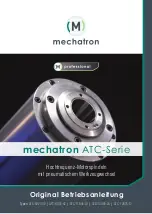
10
| English
Excessively increasing the contact pressure will not lead to
increased sanding performance, rather it will cause more
severe wear of the power tool and of the sanding sheet.
Do not use a sanding sheet for other materials after it has
been used to work on metal.
Use only original
Bosch
-sanding accessories.
Sanding Close to Edges (see figures E–F)
Thanks to the removable brush segment, you can reduce the
lateral distance between the wall/ceiling and the sanding
pad.
– Press and hold the locking mechanism
(12)
for the brush
segment
(17)
.
– Swivel the brush segment
(17)
forwards and remove it.
– To
insert
, hook the brush segment
(17)
onto the oppos-
ite side of the locking mechanism
(12)
, and swivel it to-
wards the sanding head
(11)
until it clicks into place.
Adjusting the Internal/External Airflow
Depending on the vacuum pressure, the perceived tool
weight can be reduced.
You can switch between different air flow operating modes
depending on the intended use. Turn the suction power ad-
justing lever
(13)
to one of the 3 positions.
Switch position
Type of airflow
Use
①
External airflow Ideal for sanding
walls at high sand-
ing speeds and
without vacuum
pressure
②
Mixed external
and internal air-
flow
Medium sanding
performance with
vacuum pressure
effect
③
Mixed external
and internal air-
flow
Ideal for sanding
ceilings at low
sanding speeds
but with high va-
cuum pressure
(suction power)
for a low perceived
weight
Adjusting suction power
You can adjust the suction power to achieve your preferred
balance between sanding speed and suction power. This
regulation is only possible when the internal airflow is activ-
ated (position
③
in the table above).
Use the thumbwheel
(1)
to adjust the suction power.
– 1: Low suction power
– 6: High suction power
Start with a low suction power (position 1) and increase
slowly, until there is a noticeable contact pressure.
High suction power allows low-fatigue sanding of ceilings
and walls. An excessively high suction power can cause the
power tool to vibrate, which can make handling more diffi-
cult.
Errors – Causes and Corrective Measures
Cause
Corrective measure
The drywall sander does not run smoothly or jolts across
the surface.
The suction effect is too
strong.
Reduce the suction power or
switch to external dust ex-
traction, if necessary.
The bodyfiller material and/
or substrates are hard.
Reduce the suction power or
switch to external dust ex-
traction, if necessary.
Reduce the speed.
The removal rate of the material to be machined is too
high.
The drywall sander's speed is
too high.
Reduce the speed.
The suction effect on the dry-
wall sander is too strong.
Reduce the suction effect or
switch to external dust ex-
traction.
The bodyfiller material has a
high proportion of filler or is
very soft.
Switch on the external dust
extraction, set the suction
power thumbwheel to setting
6 and, in extreme cases, re-
duce the speed.
The grit of the abrasive is too
coarse.
Use a sanding sheet with a
finer grit.
The surface quality is not optimal.
The grit of the abrasive is too
coarse.
Use a sanding sheet with a
finer grit.
The drying times for the
bodyfiller material have not
been observed.
Refer to the technical inform-
ation sheets and manufac-
turer's recommendations.
The suction effect is too
strong.
Reduce the suction power.
The bodyfiller material has a
high proportion of filler or is
very soft.
Use a sanding sheet with a
finer grit.
The running power tool has
been positioned on the sur-
face (scoring).
Position the power tool be-
fore switching it on.
Work on the surface and al-
ways work
with
the remov-
able brush segment.
There are sanding marks on the surface.
The hard sanding pad has
been positioned at an angle
on the surface.
Use a soft sanding pad with
an intermediate plate.
In the case of very soft body-
filler material, the sanding
Use a soft sanding pad with
an intermediate plate.
1 609 92A 6A8 | (08.05.2021)
Bosch Power Tools











































